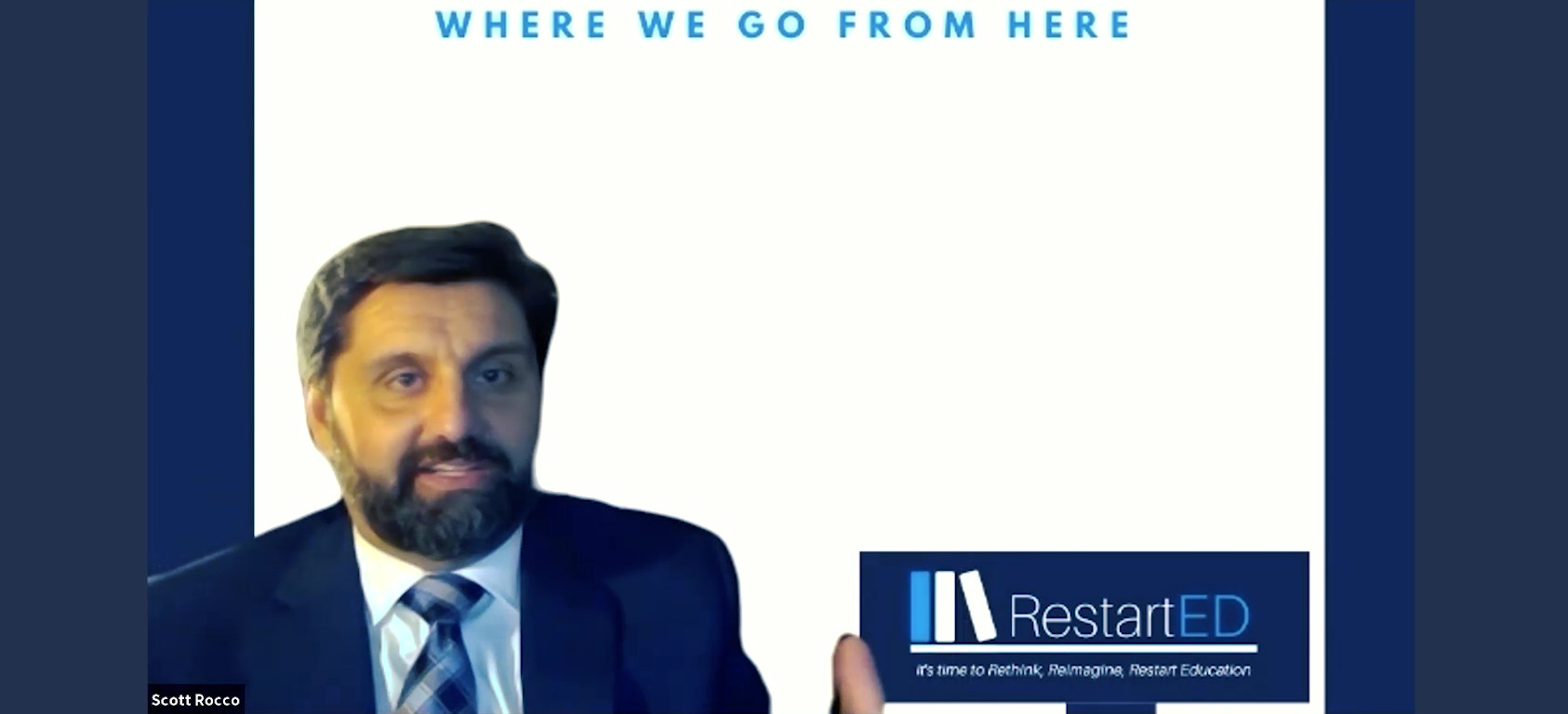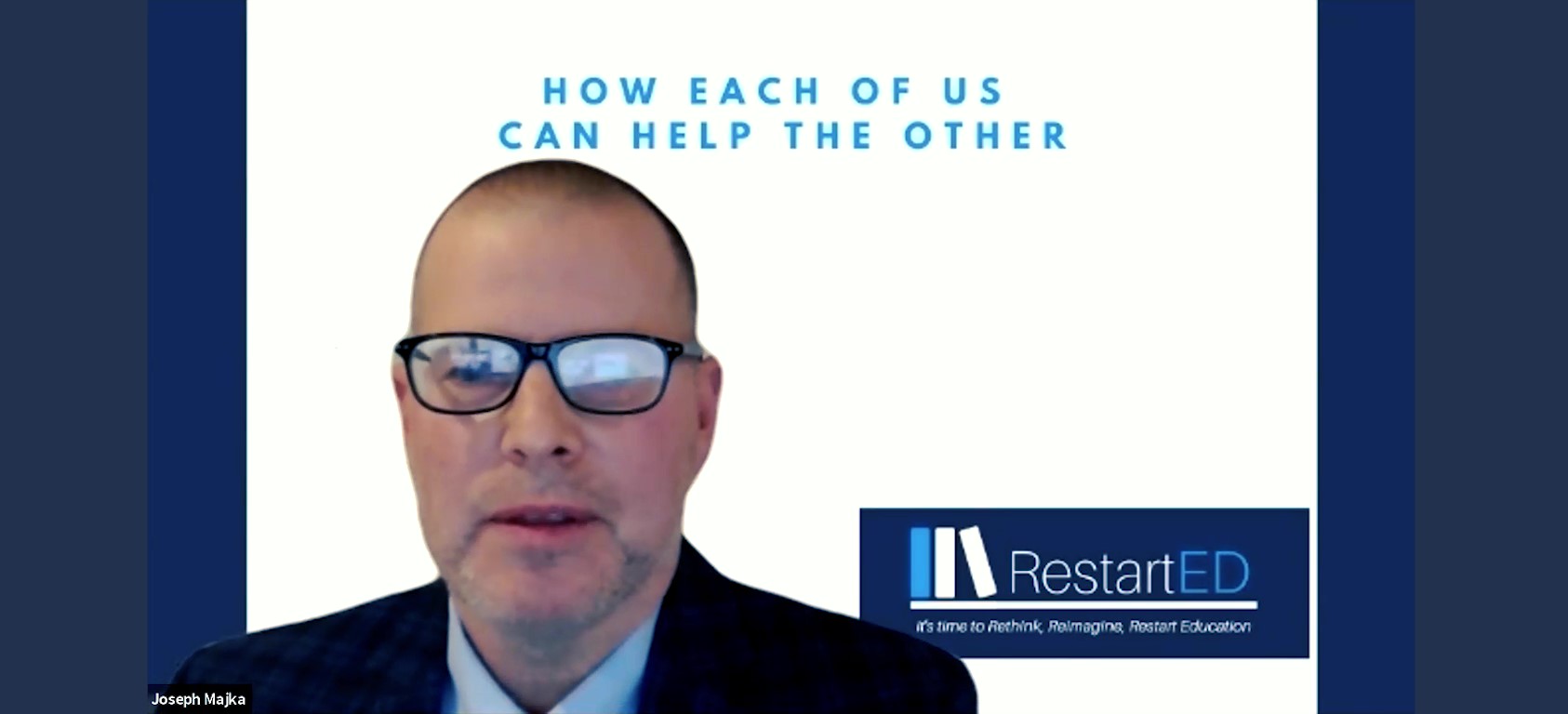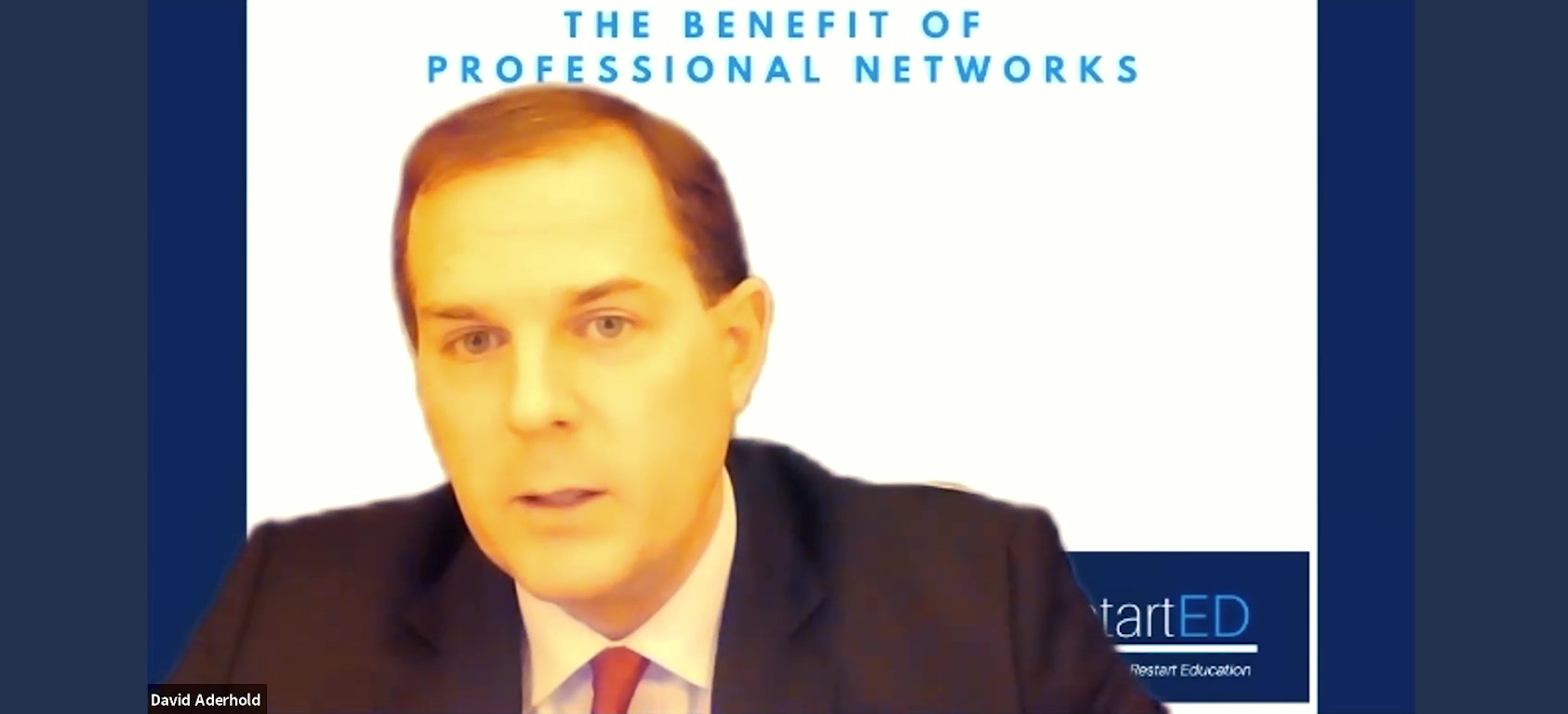By Molly Castle Work |
Scott Rocco has had trouble sleeping since the start of the COVID-19 pandemic.
Rocco, superintendent of the Hamilton Township School District in Hamilton, N.J., often would wake up at 3 a.m, he said, with his mind spinning with questions about how to maintain a rich educational experience while keeping students and staff safe. He wasn’t alone in his anxieties.
During an AASA conference presentation on Friday, Feb. 19, titled “Managing Crisis through Professional Networks,” Rocco and four other New Jersey superintendents discussed how they learned to rely on one another and how that led to the creation of Restart ED — their own professional network to manage the impact of COVID-19 on their schools in New Jersey.
“No matter what size district, what type of district … we realized we were all in the same boat,” said Rocco.



Faced with an uncertain future and minimal guidance from federal and state authorities, the panelists turned to each other for professional support. They would pose questions about everything — from virtual learning’s best practices to classroom cleaning protocols.
“These guys were my salvation,” said fellow panelist David Aderhold, superintendent of West Windsor-Plainsboro School District in Windsor Township. “They were the sounding board.”
The camaraderie brought comfort, but the panelists said they knew they’d have to look beyond their small circle to get the answers they needed during the unprecedented circumstances.
They started hosting weekly webinars for their peers and invited a range of COVID-19 experts to join as guest speakers, including an epidemiologist, school architects, school nurses, building and grounds staff and mental health professionals, Aderhold said.
“I think individually, we have to open ourselves up to accepting input from people,” said Joseph Majka, superintendent of Matawan-Aberdeen Regional School District in Aberdeen, N.J. “I know sometimes that’s difficult, but that was the most important part in all of this — recognizing that we needed help and that we can rely on each other for that help.”
The panelists hope Restart ED, the professional network that grew out of this experience, will persist and grow even after the pandemic ends and most students are back in school buildings.
The everyday issues that educators experience, like literacy and attendance, won’t go away after the U.S. reaches herd immunity, said Rocco. He advised his audience to follow the Restart ED model and seek out more dialogue, more collaboration, more groups willing to work together and more networks to address these issues.
“We, as education as a whole, have transformed since March, and we can't let that go,” he said. “We want to expand the opportunities to learn from people all across the country. And we want to continue to pose those questions together with you, and then go and get those answers and advocate for that change.”
The panel also included Charles Sampson, superintendent of Freehold Regional High School District in Englishtown and Michael Salvatore, superintendent of Long Branch Public Schools in Long Branch.
(Molly Castle Work is a graduate student at University of Maryland’s Philip Merrill College of Journalism and an intern with AASA’s Conference Daily Online.)
